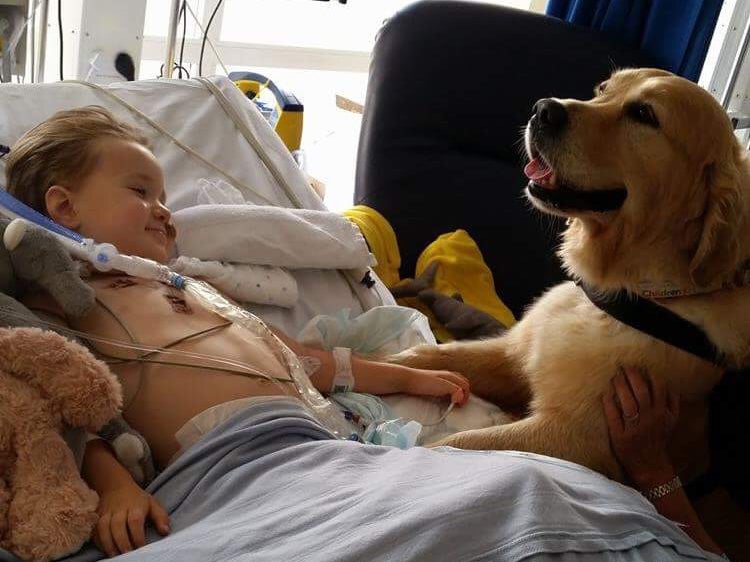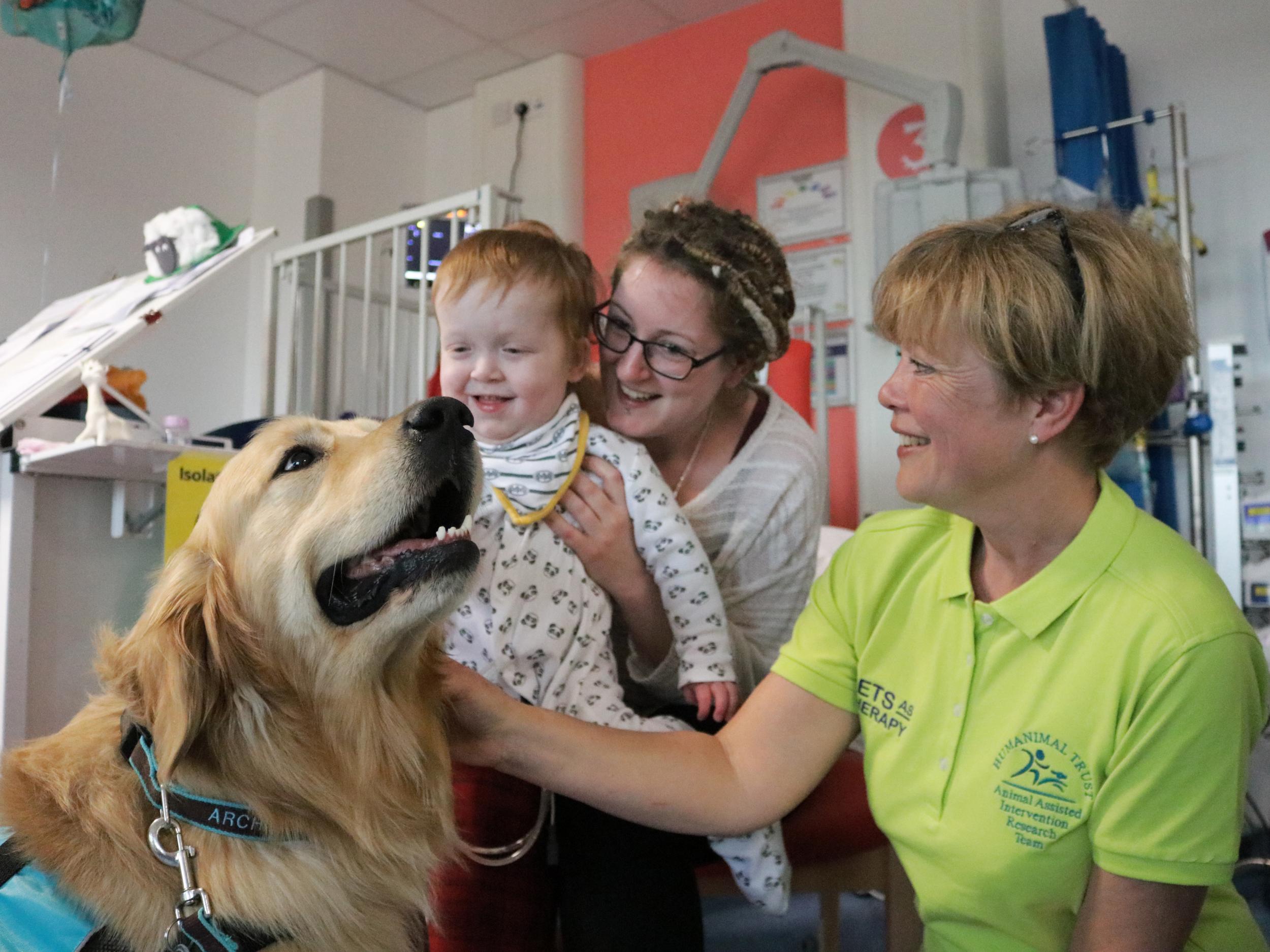Nurses call for therapy animals to be let into hospitals to help ill children
More than half of nursing staff say animals are not allowed in their workplace

Your support helps us to tell the story
From reproductive rights to climate change to Big Tech, The Independent is on the ground when the story is developing. Whether it's investigating the financials of Elon Musk's pro-Trump PAC or producing our latest documentary, 'The A Word', which shines a light on the American women fighting for reproductive rights, we know how important it is to parse out the facts from the messaging.
At such a critical moment in US history, we need reporters on the ground. Your donation allows us to keep sending journalists to speak to both sides of the story.
The Independent is trusted by Americans across the entire political spectrum. And unlike many other quality news outlets, we choose not to lock Americans out of our reporting and analysis with paywalls. We believe quality journalism should be available to everyone, paid for by those who can afford it.
Your support makes all the difference.Dogs and other animals should be allowed into hospitals to help patients recover, the Royal College of Nursing (RCN) has said.
The organisation is drawing up guidelines for medical institutions on how to use animal therapy safely and effectively, so all patients who might benefit are able to access it.
Amanda Cheesley, who is leading the initiative, said the new protocol would require animals and their handlers to be properly trained and cover basics such health check-ups and inoculation.
“It should be more of the norm rather than the exception. In particular settings, like mental health and children’s settings, it can be really, really beneficial,” she told The Independent.
“A nurse who works in a brain injury centre told me they’ve had someone who’s brought the dog in and it’s been wonderful. One or two patients have really seen a difference.”
However, animals are often banned from wards, as hospital staff can be “very risk-averse, and understandably so – they want to protect patients and everybody else”, she said.
More than half of nursing staff (60 per cent) said animals were not allowed in their workplace, according to a recent survey carried out by the RCN.

Of the more than 750 nurses who took part in the survey, nine out of 10 said they believed animals could improve the wellbeing of patients with mental health problems such as depression, and 60 per cent thought the presence of animals could help speed up physical recovery.
While few robust scientific studies have been carried out into the benefits of animal-assisted therapy, it has been growing in popularity in the US and Australia, and research has shown that keeping a pet is linked to lower blood pressure.
Animal therapy has been offered for five years at hospitals in Southampton, where qualified handler Lyndsey Uglow and golden retriever Leo visit patients three days a week.
Ms Uglow and Leo are often asked to work with particular children and enter wards and intensive care with the permission of parents and consultants.
“Leo has worked with young people who are terrified of needles; [at operations] he’s there until the child goes to sleep, and is there when they wake up. It’s more than just that he’s nice to stroke,” said Ms Cheesley.
“Hospitals like Southampton have put in place very rigorous protocols, and we will be plagiarising it shamelessly.”
Not all patients benefit from the intervention, as “not everyone likes dogs”, said Ms Cheesley, the RCN’s professional lead for long-term conditions and end-of-life care, who has been a nurse for more than 30 years.
“It doesn’t have to be unique to dogs, there are other animals who could be trained. There’s riding for the disabled, for instance,” she added. “I’d really like to see this as part of therapy, so people are paid in the same way as art or play therapists.”
The new guidelines, set to be published in September or October this year, shouldn’t be difficult to follow for hospitals who already have protocols in place for guide dogs, she said.
This article was corrected on 21 June to clarify that dogs have not been let into Southampton Hospital operating theatres, as previously indicated by the RCN
Join our commenting forum
Join thought-provoking conversations, follow other Independent readers and see their replies
0Comments